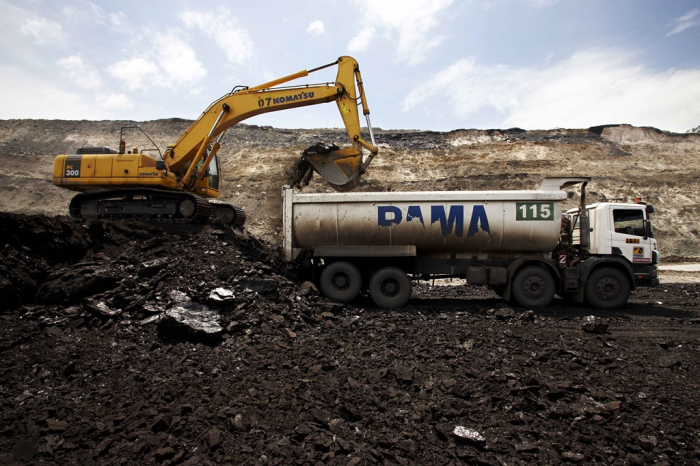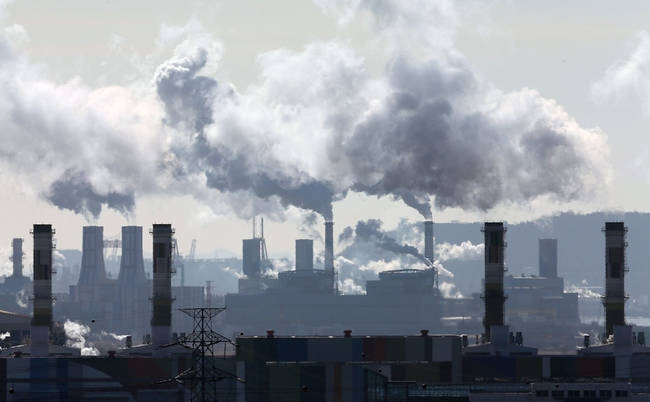Coal
Korea mulls measures on Indonesia’s coal export ban
Korea’s energy ministry sees few immediate risks for now, but coal prices could rise further after doubling in 2021
By Jan 03, 2022 (Gmt+09:00)
2
Min read
Most Read
LG Chem to sell water filter business to Glenwood PE for $692 million


Kyobo Life poised to buy Japan’s SBI Group-owned savings bank


KT&G eyes overseas M&A after rejecting activist fund's offer


StockX in merger talks with Naver’s online reseller Kream


Mirae Asset to be named Korea Post’s core real estate fund operator



South Korea is preparing measures to secure coal as Indonesia, the world’s largest supplier of thermal coal, banned exports of the commodity this month as the move is expected to ramp up global prices in the peak demand season of winter in the northern hemisphere.
Indonesia’s energy ministry prohibited overseas sales of coal from Jan. 1 to Jan. 31 as local suppliers did not meet regulations to require them to supply 25% of annual production to state utility Perusahaan Listrik Negara (PLN) at a maximum price of $70 per ton, well below current market prices.
Domestic coal producers were known to have shipped the raw material to overseas markets where it was sold at $90-100 a ton. That could disrupt not only the country’s power plant operations but also Southeast Asia’s largest economy, the ministry said.
South Korea checked the potential impact on local energy supply and demand from Indonesia’s coal export ban while setting up a task force team to cope with any supply shortage in the longer term.
“We are considering measures to build coal inventories further in preparation for the possibility that the issue prolongs,” said an official at South Korea’s energy ministry.
The ministry saw few immediate risks of the coal shortage from the export ban for now since 55% of the coal that South Korea planned to import from Indonesia has already been loaded or shipped.
MORE PRICE RISES
Energy industry sources in the country stayed concerned, however, since Indonesia was the No. 2 supplier after Australia last year, providing 20% of South Korea’s coal needs.
Indonesia exported around 400 million tons worldwide in 2020. So, the ban is feared to cause a supply shortage in China and India, raising global coal prices. Australian thermal coal at Newcastle Port, the benchmark for the Asian market, doubled to $165.86 per ton as of Dec. 31, 2021, from $83.72 at the beginning of last year, according to South Korea’s energy ministry. In October, the price rose to as high as $235.55.
Indonesia, the world’s top nickel producer, barred exports of one of the key materials for electric vehicle batteries in 2019, causing a surge in its prices. The country supplies 25% of nickel ore worldwide.
The coal export ban came in winter when power demand usually increases. In South Korea, 45 coal power plants out of the total 53 are operating, while liquefied natural gas (LNG) power plants have little room for expansion, leaving the country at risk of a power crisis.

Write to Ji-Hoon Lee at lizi@hankyung.com
Jongwoo Cheon edited this article.
More to Read
-
 Shipping & ShipbuildingHanwha Ocean shares sink after KDB's sale of 4.2% stake
Shipping & ShipbuildingHanwha Ocean shares sink after KDB's sale of 4.2% stakeApr 29, 2025 (Gmt+09:00)
-
 EnergySouth Korea nears Czech nuclear deal; Doosan, related stocks fly high
EnergySouth Korea nears Czech nuclear deal; Doosan, related stocks fly highApr 25, 2025 (Gmt+09:00)
-

-
 Business & PoliticsSeoul, Washington agree on July tariff deal framework in '2+2' trade talks
Business & PoliticsSeoul, Washington agree on July tariff deal framework in '2+2' trade talksApr 25, 2025 (Gmt+09:00)
-

Comment 0
LOG IN


